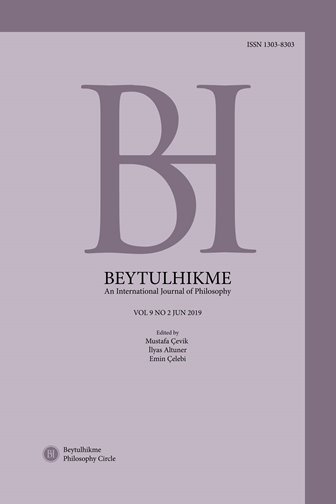Author :
Abstract
Avrupa biliminin, tarihinde yaşadığı en büyük darbe Rönesans'ta gerçekleşti. O zamanlar, Antik dönemde oluşturulan ideolojik paradigmaların yeniden canlandığı yaygın bir bilgidir. Ancak, bu ifadenin felsefe alanına uygulanmasının açıklığa kavuşturulması gerekir. Geç Ortaçağ, aynı zamanda Antik bir filozof olan Aristoteles'in felsefesinden etkilenmiştir. Bu nedenle, Rönesans arifesinde, Antik çağ unutulmadı. Rönesans'ta Platon'un felsefesi yeniden canlandı ve Geç Orta Çağ'da Aristoteles'in felsefesi ile yer değiştirdi. Platon'un felsefesi modern bilim paradigmasının oluşumunun temeli oldu. Bu çalışmanın amacı Platon'un felsefesinin hangi bölümlerinin bilimin gelişmesine ivme kazandırdığını ortaya koymak ve Platon'un bilimin gelişimini üç tezle etkilediğini kanıtlamaktır: 1) idealar dünyasının maddi dünyadan daha yüce ve daha önemli olması gibi, teori de deneyimden daha yüce ve daha önemlidir; 2) dünya hakkındaki biliş, matematiksel kategoriler uygulanmadan mümkün değildir; 3) deneyim biliş için gereklidir, ancak tamamen teoriye bağımlıdır.
Keywords
Abstract
The greatest coup that European science has experienced in its history took place in the Renaissance. It is common knowledge that at that time there was a revival of ideological paradigms which were formed in Antiquity. However, the application of this statement to the realm of philosophy requires clarification. The late Middle Ages was influenced by the philosophy of Aristotle, who was also an ancient philosopher. Therefore, on the eve of the Renaissance, Antiquity was not forgotten. In the Renaissance, the philosophy of Plato was revived, and in the late Middle Ages, it was displaced by the philosophy of Aristotle. The philosophy of Plato became the foundation for the formation of the paradigm of modern science. The purpose of this study is to reveal which segments of Plato’s philosophy gave impetus to the development of science, and to prove that Plato influenced the development of science by three theses: 1) the theory is higher and more important than experience, as the world of ideas is higher and more important than the material world; 2) cognition of the world is impossible without the application of mathematical categories; 3) experience is necessary for cognition, but it is completely subordinated to the theory.
Keywords
- Bacon, F. (2013). Große Erneuerung der Wissenschaften. Berlin: Holzinger.
- Dynnik, M. (1955). Materialisty drevnej grecii: sobranie tekstov geraklita, demokrita i epikura. Moscow: Gosudarstvennoe izdatelstvo politicheskoj literatury.
- Einstein, A. & Infeld, L. (1966). The Evolution of Physics. New York: Simon & Schuster.
- Koyré, A. (1966). Galilée et Platon. Les études d’histoire de la pensée stientifique. Paris: Presses Universitaires de France.
- Koyré, A. (1968). Newton, Galilée et Platon. In: Études newtoniennes. Paris: Galli- mard.
- Koyré, A. (1985). Ocherki istorii filosofskoj mysli: o vliyanii filosofskix koncepcij na razvi- tie nauchnyx teorij. Moscow: Progress.
- Maier, A. (1949) Die Vorläufer Galileis im 14. Jahrhundert. Studien zur Naturphilo- sophie der Spätscholastik. Roma.
- Polanyi, M. (1962). Personal Knowledge. Towards a Post-Critical Philosophy. London: Routledge.
- Webster, F. (2004). Teorii informacionnogo obshhebstva. Moscow: Aspekt-Press.





